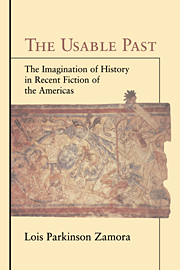PART II - INTERTEXTUALITY AND TRADITION
Published online by Cambridge University Press: 01 September 2009
Summary
As speaking subjects we continue, we take up the same effort, older than ourselves, on which we are implanted onto each other, which is the manifestation, the becoming of truth. We say that the true has always been true, but this is a confused way of saying that all previous expressions live again and receive their place in the expression of the moment, so that one can, if one wishes, read it in them after the fact, find them again in it.
Maurice Merleau-Ponty, La Prose du mondeIt is the power of mutation which the mind possesses to rediscover the truth. … the continual change without which no symbol remains permanent.
William Carlos WilliamsWHETHER THE WRITER self-consciously recuperates or invents usable precursors is, according to Maurice Merleau-Ponty, beside the point. The writer's medium requires it, no matter whether he or she intends it. As a phenomenologist, Merleau-Ponty generalizes about all speaking subjects; as a literary critic, I want to specify particular works and consider how they “implant onto each other,” how they construct the “becoming of truth” that Merleau-Ponty describes. I agree with Merleau-Ponty that all cultural texts are intertexts, but writers and readers respond to their textual traditions in different ways and for different purposes, often according to the importance given by a culture to its own history and the history of its interactions with other cultures.
- Type
- Chapter
- Information
- The Usable PastThe Imagination of History in Recent Fiction of the Americas, pp. 127 - 132Publisher: Cambridge University PressPrint publication year: 1997



